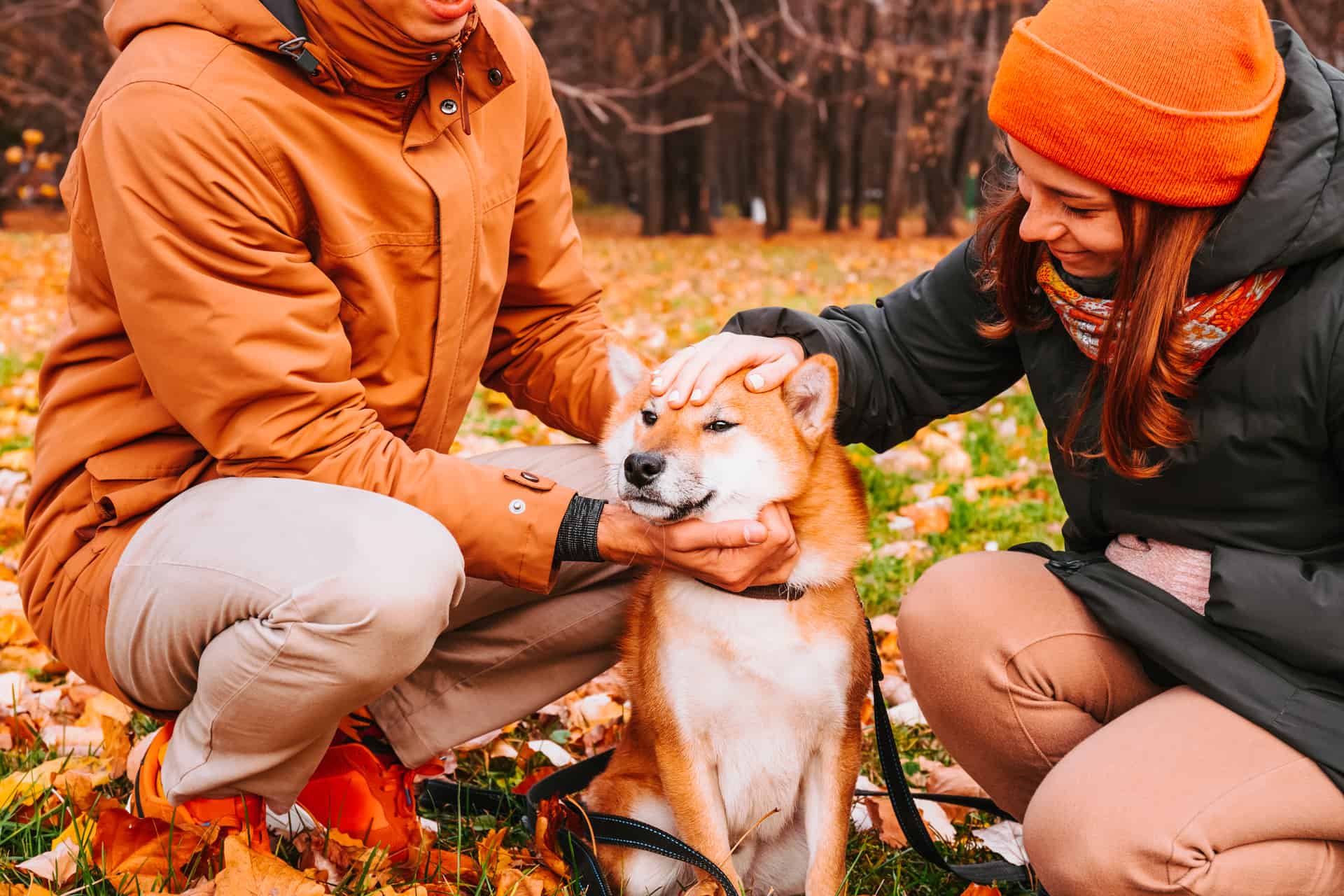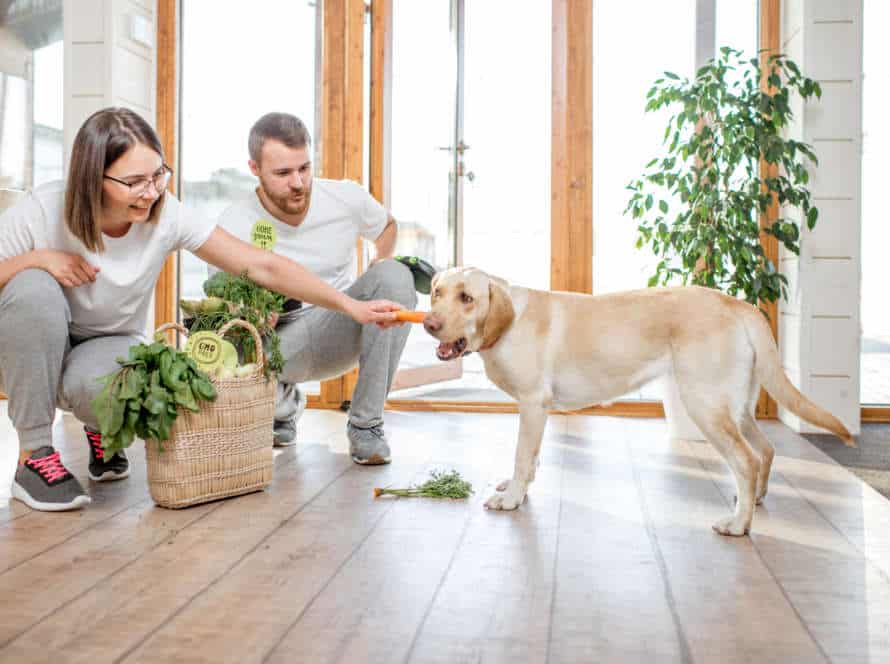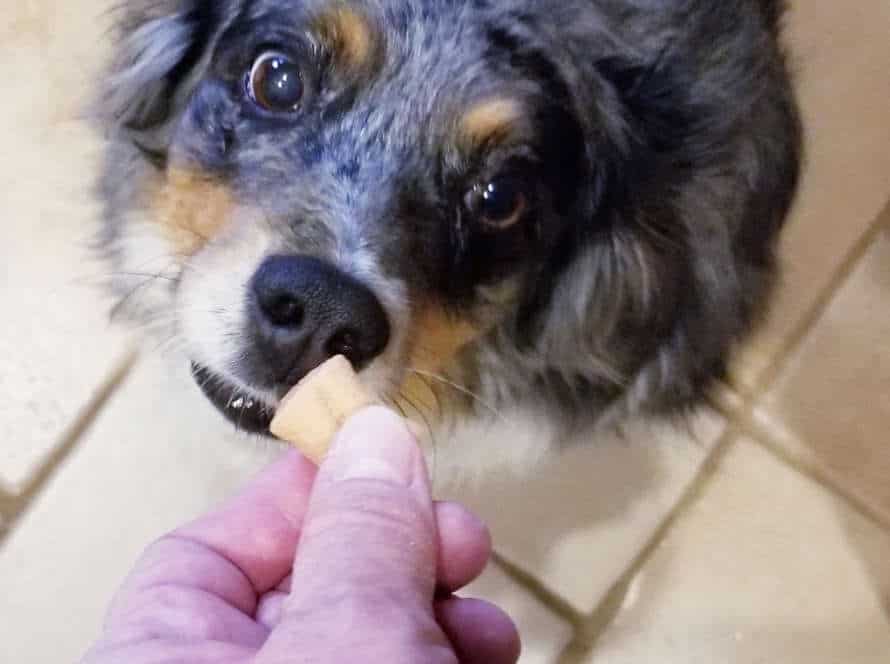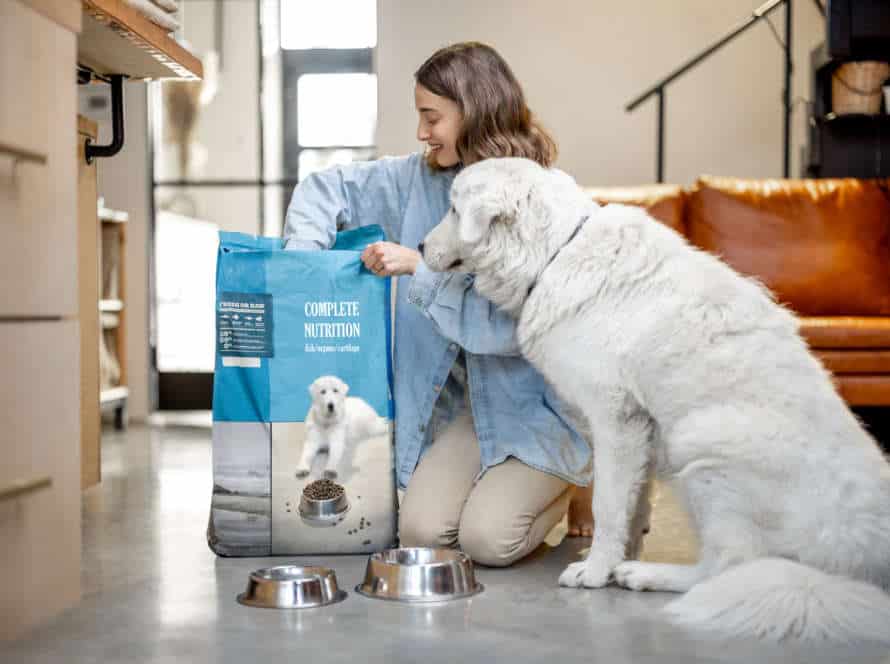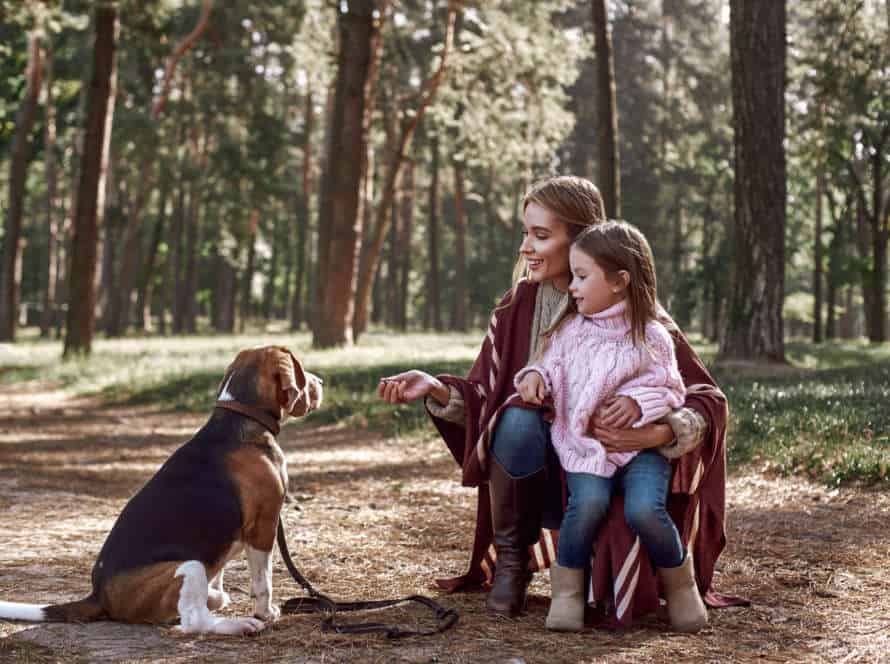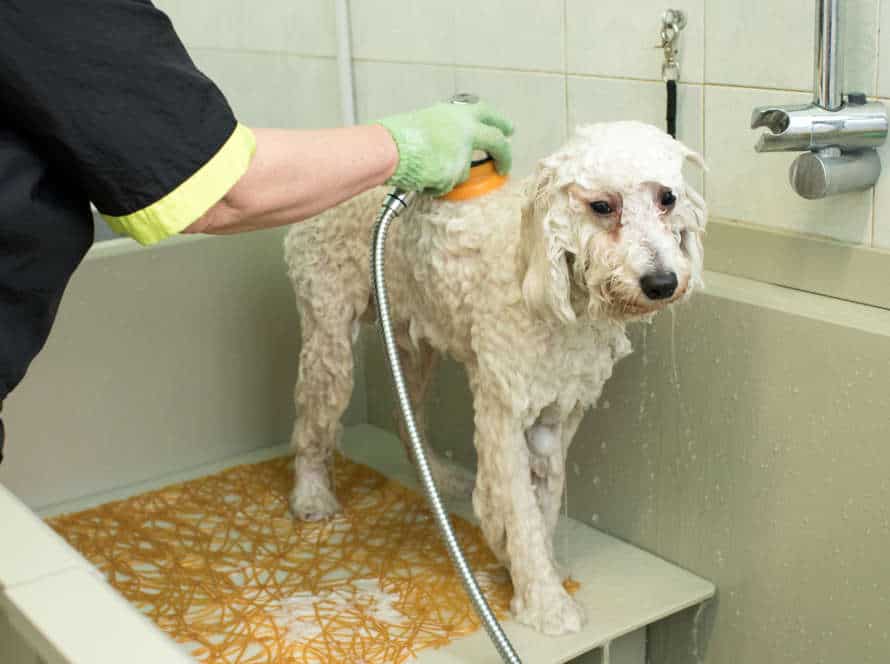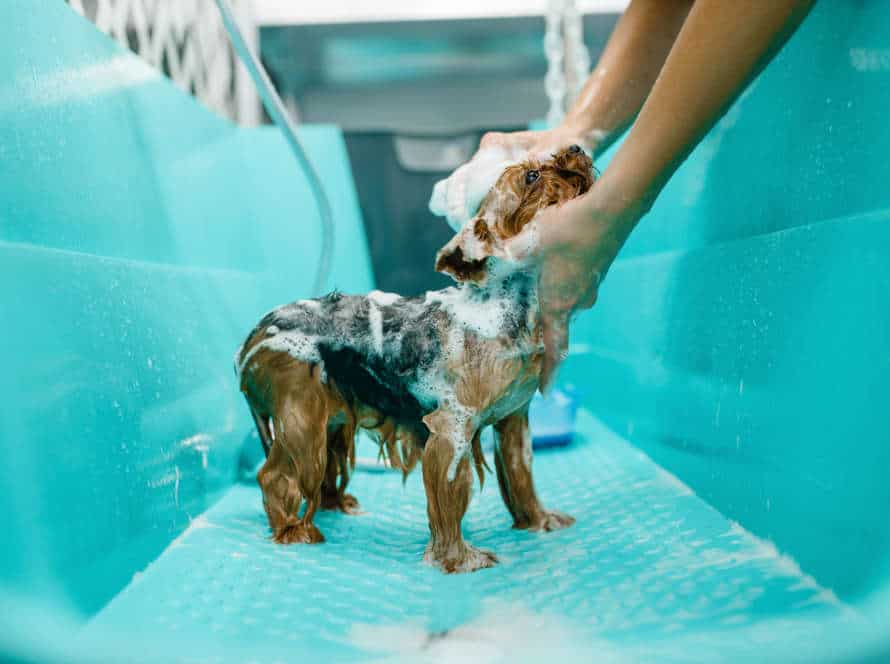Building Unwavering Trust Between You and Your Dog
Forge unwavering trust between you and your pup – it’s a process that needs time, effort & consistency. Here are ways to get started:
- Use the same words & hand signals when giving commands – this will let them know what to expect.
- Rather than punishing bad behavior, redirect it and reward good behavior.
- Show your pup attention & go for walks together – this will help build a stronger bond.
- Give treats & praise when they do something right – this encourages them & strengthens the trust.
- Listen to your dog – understand their behavior & body language.
Pro tip: Building trust takes patience. Be consistent, positive & spend quality time – this’ll create a strong bond of trust & respect.
Understanding Trust Building with Your Dog
Trust is essential for having a good relationship with your pup. To build trust with your dog, you must understand the basics. In this article, we will explain:
- What it means to trust your pup
- How to create a trust-promoting environment
- How to maintain the trust you have built
Importance of trust building
Trust building is important to make a strong bond between you and your pup. Make a secure, safe place for them to feel confident in you. Here are some tactics to help:
- Consistency: Provide food, water, activity and affection regularly to help your dog learn to depend on you.
- Positive Reinforcement: Treats and rewards help your pup link positive experiences to you.
- Clear Communication: Give clear and consistent instructions for your pup to understand what you want.
- Patience: Trust takes time, be patient and let your dog trust you at their own pace.
By using these strategies, you can make a strong foundation of trust with your dog. Plus, remember trust goes both ways, give your pup the same trust and respect you expect from them.
Human and Canine communication
Trust and communication are essential to form a strong connection between humans and their canine pals. Knowing your doggo’s body language and behavior signs can help develop a deeper bond.
Here are some tips to strengthen the trust between you and your pup:
- Familiarize yourself with your pup’s body language, like their ear movement, tail wagging, and eye contact, to get an insight into their feelings and emotions.
- Make eye contact with your pup to build trust, but don’t stare as it can be misconstrued as a threat.
- Utilize positive reinforcement techniques, such as treats and verbal praise, to reward good behavior.
- Be consistent with your commands to prevent confusing your pup.
- Spend quality time with your pup, including playtime and training, to form a strong bond.
By following these steps, you can foster trust, and create an unwavering relationship with your furry best friend that will last forever.
Treat your dog as a Dog
Create a strong relationship with your pup by treating them like a dog, not a human. It’s essential! Here are some tips:
- Understand their way of looking at the world.
- Set clear rules and expectations to create structure.
- Notice their body language and be aware of their reactions.
- Provide exercise, mental stimulation and socializing.
Doing this will not only strengthen your bond, but also make your dog content and healthy.
Effective Techniques for Trust Building with Your Dog
Creating a strong bond of trust between you and your dog is a must. By implementing the correct measures, you can create an atmosphere of trust that will last forever. Even though there may be some difficulties building trust with your pup, there are smart ways to speed up the process.
Let’s look at these useful tips to build trust with your pup:
Consistent commands and rewards
Consistency is a must for building trust with your pup. Dogs love routine and knowing what’s expected of them. Here are some tips to keep it consistent:
- Get everyone at home on the same page. Use the same commands and rewards every time.
- Positive reinforcement is key. Use treats, praise, or playtime as rewards.
- No punishing. This could make them fearful and not understand why.
- Consistency takes patience. Focus on building trust and remember, it takes time. But it will eventually lead to a strong bond between you and your furry friend.
Use positive reinforcement
Positive reinforcement is a great way to build trust with your pup. Dogs love positive feedback, so use a reward-based approach! Here’s how:
- Offer treats and praise when your pup follows your commands. This reinforces good behaviour and helps them understand what you expect.
- Have fun with your dog! Play games, walk, and do activities they enjoy. This creates a positive connection and strengthens your bond.
- Stay calm and patient when training. Dogs can sense frustration and anger, which can damage trust and lead to bad behaviour.
- Be consistent with rewards and training. Not just with achievements.
By using positive reinforcement, you create a strong connection and a happy relationship with your pup.
Practice Leash walking with your dog
Leash walking is a great way to bond with your pup. Here’s how to get started:
- Choose a peaceful, secure spot for your walk.
- Make sure the leash and harness fit your dog snugly.
- Hold the leash in a gentle yet firm grip.
- Reward desired behavior with treats, praise, and toys.
- Say “Heel” to guide your pup’s movements.
- Start with short walks, then increase the length and distance.
- Be patient and consistent – always keep your dog’s safety first.
Use your dog’s name for positive interactions
Using your pup’s name for good moments is an efficient way to make solid trust between you and your furry mate. When you always use your dog’s name with a nice tone, your pet understands that coming when their name is said has benefits and great experiences. Here are some ideas to try:
- Say your dog’s name when you’re playing, stroking, or giving treats.
- Name your pup before giving a direction, like “sit” or “come,” to get their attention.
- Don’t use your dog’s name in bad situations or link it with punishment.
- Use an upbeat and excited voice when calling your pup’s name to make a pleasant connection.
With steady use of kind words and rewarding activities, your dog will come to rely on and answer positively to its own name, overall making your relationship with your furry buddy stronger.
Playtime with your dog
Playing with your dog is a great way to build trust. Here are some tips for making the most out of it:
- Give rewards for good behavior.
- Establish boundaries.
- Make playtime interactive.
- Stay safe.
- Have your dog socialize.
These tips can help you build an even stronger bond with your pup, plus create trust between you two!
Challenges Encountered During the Trust Building Process
Building trust between you and your pup is essential to being a dependable pet owner. This trust ensures that your pet feels safe, content, and relaxed in their space. Even though establishing a trusting bond between your dog and you can be intimidating, there are many difficulties that you can tackle. This article will explore the general issues related to building trust and how to deal with them.
Overcoming aggression and shyness
Aggression and shyness are frequent hitches when constructing trust between a pup and their parent.
Aggressiveness is often because of fear, zero socialization, or adverse past events. To beat aggression, spot the causes of your pup’s demeanor and use positive reinforcement to desensitize them.
Shyness likely comes from insecure attachment, ill-treatment, or lack of socializing. To overcome shyness, construct a calm and caring atmosphere for your dog, gradually introducing them to new things and commending good conduct.
Patience, regularity, and positive reinforcement will help build a firm and unwavering bond of trust between you and your dog, aiding in conquering their challenges and resulting in a loving and faithful companion.
Building trust after significant changes
Creating trust after huge changes can be tough. But, with patience and regularity, a stronger and more durable bond can be formed.
Fear or anxiety is a common issue while building trust. Your dog may react with nervous behavior or aggression due to worry of the unknown or past pain. To beat this, start small and encourage good connections. Use treats and approval to reward quietness and avoid any triggering scenarios.
Another challenge is inconsistency in your training. Make clear guidelines for your pup and be consistent with your commands and expectations. Don’t punish or scold them, as it will damage trust and weaken the bond you have made.
Remember that forming unconditional trust between you and your pup takes time and effort. Have patience, communicate clearly, and give your furry pal lots of love and attention.
Pro tip: Get professional help from a certified dog trainer or behaviorist for extra advice and assistance.
Re-establishing trust after punishment
Rebuilding trust is not easy, especially when it comes to you and your canine. Punishment might leave your pup feeling scared, anxious and bewildered, which can make the trust-building process difficult.
Here are some challenges that need to be overcome:
- Fear: Fear is a major part of the trust-building process. Your pup may be scared of you and not trust you like before.
- Anxiety: Your pup may become anxious and not feel safe around you after punishment.
- Aggression: In some cases, your furry friend may become aggressive towards you, making the trust-building journey more challenging.
Overcoming these issues requires patience, understanding and a lot of positive reinforcement. Desensitization and counter-conditioning can help your pup overcome fear, anxiety, and aggression towards you. Building trust is a slow process, and it needs consistent effort, love and care.
Pro tip: If you’re struggling to re-establish trust after punishment, seek help from a dog trainer or behaviorist.
Building trust with rescues
Building trust with rescue dogs can be tricky and take time. Patience, consistency, and understanding of their unique problems is key. Here are some common challenges:
- Fear and anxiety. Trauma or abuse may cause fear of humans. Take it slow and create a calm and safe environment.
- Lack of socialization. They may not have met other dogs or humans, leading to fear or aggression. Positive socialization helps them build confidence and trust.
- Health concerns. They may have health issues needing vet care. Treatment helps them feel secure in the new home.
Address these challenges and give love, care and training. Reward good behaviour with love, treats and playtime. Trust will follow!
Advanced Ways To Build Trust Between You and Your Dog
For a successful relationship, building trust between you and your pup is essential. It needs mutual respect and understanding. Create a secure and safe atmosphere for your dog. Give positive reinforcement plenty of times. Clicker training and luring are advanced methods to build trust. Let’s learn more of these advanced methods.
Agility training
Agility training is a great way to build trust between you and your pup. It involves teaching them to navigate obstacles such as jumps, tunnels, and weave poles in a set order within a time limit.
Why is it good?
- It stimulates your dog mentally and physically, improving their behavior and obedience.
- It teaches them to follow your commands quickly and efficiently.
- It also encourages communication and cooperation, building a strong bond and trust.
Pro tip: Start with basic equipment and increase difficulty as they become more skilled. Always use positive reinforcement to reward good behavior and strengthen trust.
Obedience training
Obedience training is key for trust between you and your pooch! Here’s how to establish an unbreakable bond:
- Consistency is vital. Set rules and stick to them!
- Positive reinforcement works best – reward good behavior.
- Good communication is key. Learn their body language and vocal cues and respond.
- Gradually teach new tricks and commands, building on the basics.
- Socialize your dog with others to make them feel safe.
These techniques can help you create a strong bond and respect with your pup!
Canine sports
Canine sports are the perfect way to form a strong connection between you and your pup. Activities such as agility, flyball, or obedience trials require teamwork, communication, and trust.
But, there’s more to building that trust than just sports. Here are some advanced strategies:
- Positive reinforcement training: Use treats, compliments, and toys to reward good behaviour and obedience. This will create a positive link between you and your pup.
- Consistency: Be consistent in your commands, rewards and behaviour. Dogs need consistency and to know what to expect from their owners.
- Socialization: Get your pup out with other dogs, people, and animals from a young age. This helps to build their self-confidence and trust.
- Exercise and play: Physical exercise and playtime helps your dog release energy and bond with you in a fun way.
By taking part in canine sports and following these methods, you and your dog will form a strong and lasting bond. This will make them a well-rounded and well-behaved companion for life.
Teaching new tricks
Teaching new tricks to your pup is a great way to form a bond based on mutual trust. Here are a few tips to help you achieve this:
- Set up a regular routine, including exercise, mealtime and playtime.
- Use positive reinforcements, like treats or praises, to reward good actions and discourage bad behaviour.
- Utilize training techniques, e.g. clicker training and shaping, to educate your dog in new skills.
- Give your dog regular grooming and handling, including nail clipping and teeth cleaning.
- Be consistent and patient with your dog, it takes time and effort to build trust.
By utilizing these tips, you can create a trusting relationship with your canine companion that will last a lifetime.
Activity training
Activity training is a great way to build trust between you and your pup. It includes engaging them in active training sessions that need focus, patience, and regular positive reinforcement. Here are some advanced methods to create a strong bond with your pooch:
- Show them new tricks and commands. This will challenge them mentally and help them develop new abilities. Reward them for their successes with positive reinforcement.
- Take them on different, exciting trips. For example, a hike, a beach day, or a picnic in the park. New experiences will help your dog learn to trust you in diverse conditions.
- Practice off-leash training in a safe space. This will show your dog that you have faith in them and give them the opportunity to explore and play without being restrained.
- Focus on obedience training, like recall commands. This will make sure your dog listens to you in any situation, which is key to building trust.
Remember, building trust with your dog takes time and patience. Always be patient and positive when training to strengthen your connection.
Maintaining Unwavering Trust with Your Dog
It’s key to have trust between you and your pup. This establishes a healthy and satisfying relationship. To accomplish this, you need to be consistent, patient, and persistent. Our article chats about how to maintain trust between you and your furry pal.
Show your dog love and respect
Love and respect are essential for having a strong relationship with your pup. Here are some tips to help you out:
- Communication: Learn to read your dog’s body language and react. Use clear, consistent commands, tones, and positive reinforcement.
- Boundaries: Respect your dog’s boundaries and give them space. Don’t overstimulate or play aggressively. Give them a safe and secure area.
- Exercise and training: Make sure they get enough exercise and mental stimulation. Go to classes with them and socialize with other people and pups.
- Health and well-being: Keep them healthy with the right nutrition, exercise, grooming, and vet visits. Address any health problems quickly, so they don’t become stressed.
- Love and affection: Show them love and attention. Spend time with them, cuddle, and reward good behavior with treats, toys, and play. A content and loved pup is a loyal companion for life!
Continually practice training
Training your pup is important for building strong trust. Here are some tips to help you train consistently:
- Schedule regular times. Set aside time each day and stay consistent.
- Keep it short and fun. Dogs have a short attention span, so 10-15 minutes max. Make it positive and rewarding.
- Use positive reinforcement. Treats, praise and petting are great rewards. Avoid punishment as it can hurt trust.
- Be patient and persistent. Training takes time, so don’t expect fast results. Keep at it.
Pro Tip: Clicker training is a great technique. It uses a clicking sound to communicate with your pup during training.
Stay active with your dog and continue to bond
Spend time with your pup and build trust! Here are a few ideas:
- Hide and Seek: Get your pup to stay while you hide! Then call them and let them find you. This game helps build trust and mentally stimulates them.
- Agility Courses: Make a course in your backyard and have fun! This activity requires verbal commands, physical collaboration, and trust.
- Long Walks/Hiking: Head outside for a change of scenery. Long walks and hikes challenge your pup physically and give them the chance to enjoy your company.
Pro tip – Use positive reinforcement, patience, and consistency for all activities. Time spent and connecting with your pup strengthens the relationship and deepens trust.
Use positive reinforcement to reward good behavior
Positive reinforcement is a great way to build trust between you and your pup. Here are a few tips:
- Give treats or praise for good behavior, like sitting or staying.
- Use a clicker to mark the behavior and give a reward.
- Immediately reward good behavior to reinforce it.
- Focus on rewarding good actions, not punishing bad ones.
Using positive reinforcement can create a safe and positive environment for your pup. This leads to better behavior and a stronger bond.
Pro tip: Be consistent when using positive reinforcement. Always reward good behavior and avoid rewarding bad behavior.
Keep up with veterinary appointments, hygiene care, and diet needs.
To build unwavering trust with your pup, it is important to follow their vet appointments, hygiene and nutrition needs!
- Have regular vet check-ups: these allow early detection and treatment of any health issues. It is advised to take them for an annual visit, to ensure that their vaccinations are up-to-date and their health is good.
- Grooming, brushing teeth and trimming nails are part of hygiene care; this can help avoid gum disease and infections.
- Nutrition is key, just like for humans! Ensure your dog has a balanced, nutritious diet suitable for their age, size and activity level.
By taking care of their health and nutrition, you will protect your pup’s wellbeing and strengthen the bond of trust between you.
Pro Tip: Consult the vet about any questions or worries you have about your dog’s health and nutrition.
Frequently Asked Questions
Q: How can I build trust with my dog?
A: Building trust with your dog takes time and consistency. Start by establishing a routine and showing your dog that they can depend on you. Treat your dog with kindness, patience, and fairness, and make sure to follow through with your actions and commands.
Q: Can I teach an old dog new tricks?
A: Yes, you can teach an old dog new tricks, but it may take longer and require more patience. Use positive reinforcement and a consistent training method to help your dog learn new skills or behaviors.
Q: How do I prevent my dog from becoming fearful or aggressive?
A: Socialization is key in preventing fear and aggression in dogs. Introduce your dog to different people, animals, and environments to help them feel comfortable and confident. Be patient with your dog and avoid using punishment or physical discipline.
Q: Is it necessary to establish dominance over my dog?
A: No, dominance theory and alpha dog concepts have been debunked in modern dog training. Instead of dominating your dog, focus on building a respectful and loving relationship based on trust, communication, and positive reinforcement.
Q: Can my dog sense my emotions?
A: Yes, dogs are highly attuned to human emotions and body language. They can pick up on cues like tone of voice and facial expressions, so it’s important to remain calm and positive around your dog to build trust and avoid negative associations.
Q: What can I do if my dog has trust issues due to past trauma or abuse?
A: Dogs who have experienced trauma or abuse may require extra patience and understanding to build trust. Consider working with a professional dog trainer or behaviorist to develop a personalized training plan that meets your dog’s individual needs.

